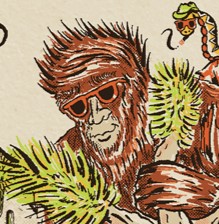So I'm taking the last of my undergrad history courses right now, and one of the books that my professor assigned us is Adam Hochschild's Bury the Chains. We're six chapters in, and so far, Hochschild has centered British abolitionists (primarily Thomas Clarkson) in his accounting of the outlawing of the slave trade in England (I phrase it that way because we all, I assume, know that slavery itself didn't go anywhere after 1833).
Now, I might not be the best read Marxist, but I know enough to be skeptical of any claims of significant historical events being driven by the energy and moral force of "great" individuals rather than the ebb and flow of material reality, a claim Hochschild is definitely making here. He even quotes Emerson in saying "An institution is the lengthened shadow of one man."
Well! I couldn't let that nonsense go unargued, and since lambasting my professor would do no good, I'm here to ask if anybody happens to know the actual reasons the slave trade was outlawed, beyond vagaries about the industrial revolution and wage slavery. Gimme the real nuts and bolts.


The Slavery Abolition Act was enacted in August 1833 because there was a massive slave revolt in Jamaica less than two years earlier, which took obvious inspiration from the triumph of the Haitian Revolution which culminated in the complete liquidation of the slaveowner class by the slave class. At the end of the day, slavery was abolished because it turns out slaves fucking hated slavery and would do anything to end their subjugation, up to and including slitting their masters' throats at night and burning down their plantations. Slavery held on in the US because the antebellum South had a demographic advantage relative to the Caribbean, where the slaves vastly outnumbered the nonslave population.